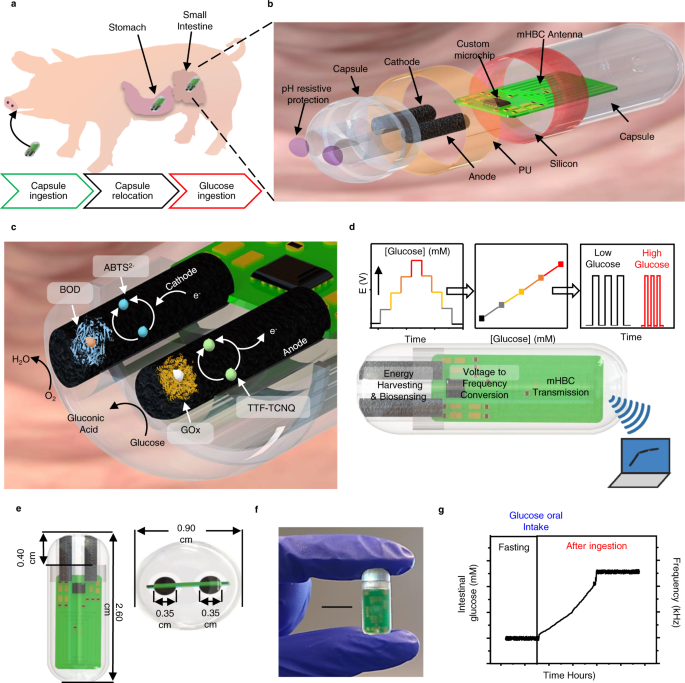UMass Amherstの研究は、発見をもとに個別化医療のアプローチを開発することを目的としています。 UMass Amherst research aims to use discovery to develop personalized medicine approach
2022-12-01 マサチューセッツ大学アマースト校
研究者たちは、プリオン仮説に基づいて研究を行っている。すなわち、ミスフォールディングしたタンパク質が体全体に伝播し、パーキンソン病やMSAに加えて、アルツハイマー病、進行性核上性麻痺(PSP)、レビー小体型認知症(DLB)を含む神経変性疾患を引き起こすという仮説である。
以前の研究で、チームは、パーキンソン病の原因となることがわかっているα-シヌクレインの異なる変異を発現する細胞を作った。そして、その細胞に、亡くなったMSA患者サンプルから分離したa-シヌクレインを感染させた。
αシヌクレインの変異型であるE46Kは、MSAの形に折り畳むことができないため、本質的に病気の進行を阻害していることがわかったのです。この実験は、株仮説の理解を深めるという点で、また、個々のゲノムの特定の違いがどのように疾患の感受性を左右するかを理解するという点で、非常に興味深いものであった。
研究者らは、E46K変異が、475日間の潜伏期間中、マウスのMSAの伝達を同様にブロックすることを発見している。E46K変異を発現するマウスは、MSA患者サンプルを接種しても発病しなかった。しかし、E46Kのa-シヌクレインを接種されたマウスは発症した。
このことは、ゲノムのたった一つの変化がMSAに対する防御効果を持ちうることを教えてくれている。
<関連情報>
- https://www.umass.edu/news/article/protein-mutation-causes-parkinsons-may-prevent-another-neurodegenerative-disease
- https://journals.plos.org/plospathogens/article?id=10.1371/journal.ppat.1010956
E46K変異はトランスジェニックマウスにおけるα-シヌクレインプリオンの複製を調節する The E46K mutation modulates α-synuclein prion replication in transgenic mice
Sara A. M. Holec,Jisoo Lee,Abby Oehler,Lyn Batia,Aryanna Wiggins-Gamble,Jeffrey Lau,Felicia K. Ooi,Gregory E. Merz,Man Wang,Daniel A. Mordes,Steven H. Olson,Amanda L. Woerman
PLOS Pathogens Published: December 1, 2022
DOI:https://doi.org/10.1371/journal.ppat.1010956
Abstract
In multiple system atrophy (MSA), the α-synuclein protein misfolds into a self-templating prion conformation that spreads throughout the brain, leading to progressive neurodegeneration. While the E46K mutation in α-synuclein causes familial Parkinson’s disease (PD), we previously discovered that this mutation blocks in vitro propagation of MSA prions. Recent studies by others indicate that α-synuclein adopts a misfolded conformation in MSA in which a Greek key motif is stabilized by an intramolecular salt bridge between residues E46 and K80. Hypothesizing that the E46K mutation impedes salt bridge formation and, therefore, exerts a selective pressure that can modulate α-synuclein strain propagation, we asked whether three distinct α-synuclein prion strains could propagate in TgM47+/- mice, which express human α-synuclein with the E46K mutation. Following intracranial injection of these strains, TgM47+/- mice were resistant to MSA prion transmission, whereas recombinant E46K preformed fibrils (PFFs) transmitted neurological disease to mice and induced the formation of phosphorylated α-synuclein neuropathology. In contrast, heterotypic seeding following wild-type (WT) PFF–inoculation resulted in preclinical α-synuclein prion propagation. Moreover, when we inoculated TgM20+/- mice, which express WT human α-synuclein, with E46K PFFs, we observed delayed transmission kinetics with an incomplete attack rate. These findings suggest that the E46K mutation constrains the number of α-synuclein prion conformations that can propagate in TgM47+/- mice, expanding our understanding of the selective pressures that impact α-synuclein prion replication.
Author summary
The underlying cause of disease in a group of movement disorders called syncleinopathies is the misfolding of the protein α-synuclein into a shape that self-templates to spread disease. The type of synucleinopathy that a patient develops depends on the shape α-synuclein adopts during misfolding. For example, α-synuclein misfolds into one shape in patients with Parkinson’s disease (PD) and into another in patients with multiple system atrophy (MSA). These distinct forms are referred to as strains. Understanding α-synuclein strain biology, and the factors that impact strain formation and spread, is imperative for developing successful diagnostics and therapeutics. In this study, we investigated the effect of the E46K mutation in α-synuclein, which causes PD, on α-synuclein strain biology to determine how the patient’s genetic background can impact disease. Our results showed that this particular mutation modulates α-synuclein spread; while mice expressing E46K α-synuclein were resistant to MSA prion replication, synthetic E46K fibrils induced neurological disease in the mice. In contrast, heterotypic seeding of wild-type synthetic fibrils yielded inefficient propagation that could not induce neurological signs in the mice. These results indicate that patient genotype can greatly impact α-synuclein strain formation and, therefore, clinical presentation in synucleinopathy patients.


